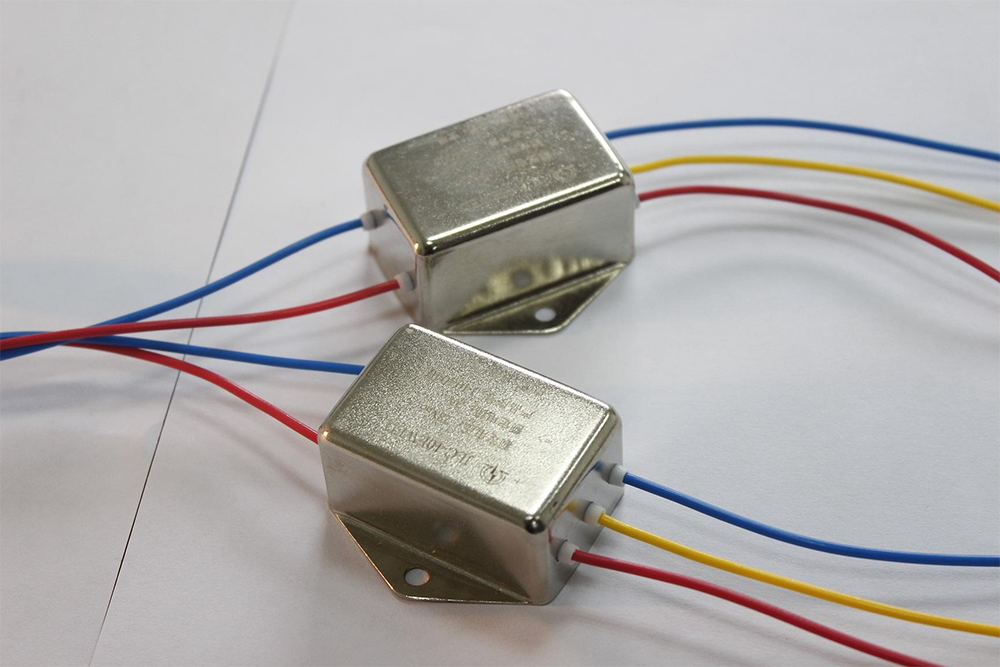Electronic Filters
Nantian Electronics is one of the leading electronic components distributors, selling various brands and different types of electronic filters including ceramic filters, spiral filters, RF filters, SAW filters, Wix Filters, RF filters and other commonly used filters. We also have extensive filter knowledge. Below we will explain filters in detail. Read this article and you will understand the working principle, function and classification of electronic filters.
What is Filters
Electronic filters are passive or active components used in electronic circuits to selectively allow or block the passage of signals or frequencies based on their specific properties. These filters help control the flow of electrical signals in various applications, such as audio processing, radio communications, and power supplies.

Filters used in electronic circuits
How the Filter Works
Electronic filters are crucial components in electronic circuits that serve to manage the flow of signals by allowing specific frequencies to pass while attenuating or blocking others. Filters operate on the principle of impedance, which is the opposition to the flow of alternating current, and they use various combinations of passive electronic components like resistors, capacitors, and inductors to manipulate signals.
The fundamental working principle behind filters is impedance matching. Different passive components exhibit varying impedance values at different frequencies. For instance, capacitors have lower impedance at higher frequencies and higher impedance at lower frequencies, while inductors have the opposite behavior. Filters are designed to exploit these characteristics to shape signals.
Functions of electronic filters
Electronic filters are essential components in electrical and electronic systems, serving various critical functions. They enable precise frequency selection, allowing desired components of a signal to pass while attenuating unwanted frequencies. Filters also play a significant role in reducing noise and interference, enhancing signal quality. They are instrumental in signal shaping, allowing modifications of amplitude or phase. Moreover, filters facilitate signal isolation and DC blocking, making them indispensable in multiplexing, demultiplexing, and separating direct current from alternating current. These versatile components also suppress harmonics, match impedance, smooth signals, correct frequency response, and prevent aliasing.
By reducing interference and enhancing signal quality, electronic filters find applications in diverse fields, including consumer electronics, telecommunications, power electronics, and data acquisition systems.
Type of Filters
Filters are categorized based on their frequency response, which describes how they interact with signals of different frequencies. There are four primary types of filters: low-pass filters, high-pass filters, band-pass filters, all pass filter, and band-stop filters (notch filters).
- 1. Low-pass filters permit lower frequencies to pass while attenuating higher frequencies. They are commonly used in applications where only lower-frequency components of a signal are desired, such as in audio systems.
- 2. High-pass filters allow higher frequencies to pass through while attenuating lower frequencies. They are used to eliminate low-frequency noise or isolate high-frequency components.
- 3. Band-pass filters enable a specific range of frequencies to pass through while blocking both lower and higher frequencies. These filters are useful in radio receivers to select a particular frequency band.
- 4. Band-stop filters (notch filters) block a specific range of frequencies while allowing all other frequencies to pass. They are effective in eliminating or reducing specific interference or noise.
- 5. An all-pass filter has a flat frequency response and does not attenuate signals at any frequency. It can be seen that although the all-pass filter is also called a filter
Filters can be active or passive. Active filters incorporate active components like operational amplifiers and are capable of amplifying signals as well as filtering them, while passive filters use only resistors, capacitors, and inductors. Filters can also have different orders, describing how quickly their gain changes with frequency. Higher-order filters exhibit steeper roll-off characteristics.
Filter design is a critical aspect of electronics, as filters must be carefully configured with specific component values and arrangements to achieve the desired frequency response. In essence, filters are versatile tools for shaping signals in electronic circuits, ensuring that the right frequencies are allowed to pass while unwanted frequencies are attenuated or blocked.
Electronic Filter Buying Guide
Selecting the right electronic filter is crucial for optimal signal quality and performance in your application. Key factors to consider include the type of filter needed (e.g., low-pass, high-pass, etc.), the required frequency range, filter order, passband ripple, and attenuation. Matching input and output impedances, considering size and mounting options, and assessing component tolerances are equally important.
When purchasing electronic filters. You need to choose a reliable manufacturer whenever possible. For example: Analog Devices, Maxim Integrated, Omron, ROHM Semiconductor, Texas Instruments, Murata, Tusonix, Schaffner, TDK Corporation, NXP Semiconductors, TE Connectivity and other famous electronic filter manufacturers.